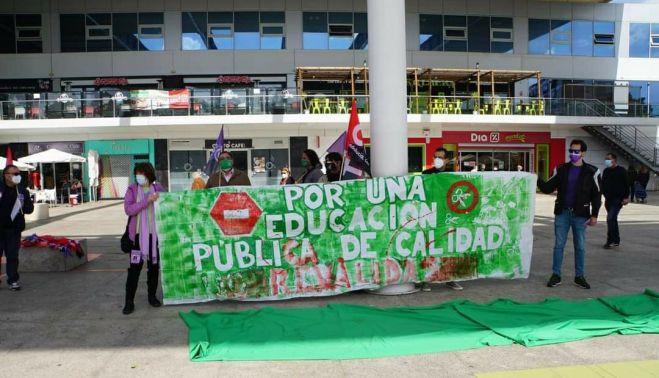Status: 09.03.2021 2:53 p.m.
–
–
–
The corona pandemic hit many artists hard. This is also the case in New York. About a thousand employees of the Metropolitan Opera have been without wages for a year. Cellist Dorothea Figueroa is also affected.
From Antje Passenheim,
ARD-Studio New York
–
–
–
Dorothea Figueroa never thought that she would play street music one day. That she’s moving from digging one of the world’s most famous orchestras to Central Park to top up her budget. Born in Dresden, she has been a cellist in the Metropolitan Opera orchestra for almost 20 years. And no wages for a year. Just like around 1000 Met employees with her – musicians, singers, stage workers. Everyone was hit hard when the curtain closed for the last time on March 11 a year ago.
–
Antje Passenheim
ARD-Studio New York
–
–
–
–
–
Overnight without a salary
“What we didn’t expect, of course, was that we would suddenly find ourselves without financial aid,” says Figueroa.
Because the salary stayed away overnight. The opera couldn’t pay anything more. Not even for Dorothea’s husband, who was also a cellist in the orchestra. Unemployment benefits are meager and savings are slowly being used up.
It will be tight, says the professional musician: “For example, we have two small children of elementary school age and then we were really worried that they could continue to go to the school we had chosen.”
Then there are the rates for the small apartment and the expensive life in Manhattan. Many colleagues could not stay: “A lot of them are now living with their parents again. I think 40 percent of all musicians have already left the city.”
“Abandoned by the Met”
Those who are there are frustrated. And fight for their money. They feel let down by the management of the Met, says the chairman of the opera committee, Brad Gemeinhardt. “Instead of working with us, the Met decided to suspend our salaries and permanently deteriorate our contracts.”
It is different from the point of view of opera director Peter Gelb. The manager wants to save the house he has been running for 15 years: “The tougher it gets, the less likely I will give up.”
With 3,000 employees, the Met is the largest performing arts company in the United States – with an annual budget of $ 300 million.
Yellow says: “We are not just an orchestra, we are an opera house. And the only one in the whole country that offers its musicians and singers full employment. Like the State Opera in Berlin or the Bavarian State Opera in Munich.”
Met budget is tight
Only that it cannot pay at the moment – as long as there is no introduction, says manager yellow. The Met budget was tight even before the pandemic. Now it is a disaster: There are no tourists, no subsidies, no stimulus money – just a few sponsors. The opera has a choice: Either you have to change something or accept something, said Gelb.
“We are currently negotiating with the unions about new terms of the contract. We are bound by promises that would make it impossible for the Met to survive for the next few years. Because it will be a while before the audience comes back.”
This means that if the wages are to flow again, they have to decrease. Gelb explains: “We have proposed cuts of around 30 percent – namely the wages and ancillary costs of the orchestra musicians, the choir and the stage workers. For the individual, however, this only makes about 20 percent less wages.”
Renovation takes a long time
If the musicians agree, they get their money back. They were still among the highest paid artists in the world.
But it is not that simple, says negotiator Gemeinhardt: “These cuts should be permanent, and there is the point of contention: We are ready to make some concessions until the Met is back on track and financially stable. But then the musicians have to go back deserve what they had before. ”
Opera director Gelb does not want to promise them that. The restructuring concept needs staying power, says the manager, who, according to his own statements, has also waived his salary of over a million euros for a year. Until normal operation is up and running again. It is not enough that the ticket counters are expected to reopen in September. Even then, it will take time for locals and tourists to come back to the halls, says Gelb.
Worry about the artistic level
The musicians have lost a piece of their identity, says cellist Figueroa. She and her colleagues are concerned about the artistic level. If there is less money, many may leave, they fear. Management couldn’t risk that.
“You can’t just lose ten to 20 people from the orchestra and think: It’s an organism. I’ll quickly rip the kidney out and it’ll still work.”
But the native Saxon has hope. And she doesn’t think about walking. Besides, this crisis taught her at least that: It’s fun to play in Central Park.
German cellist unemployed for a year – musician of the Met Opera in a wage dispute
Antje Passenheim, New York, March 9, 2021 1:48 p.m.
–
–
–


